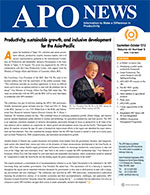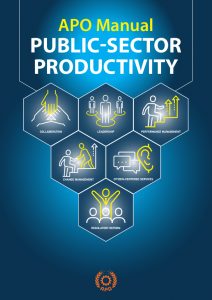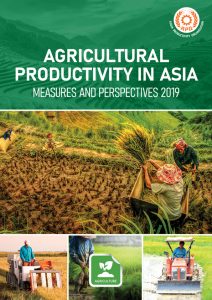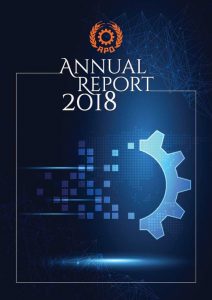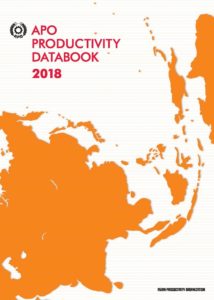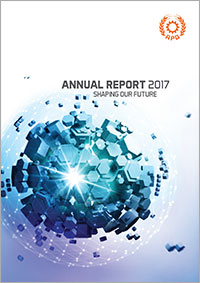e-Books
Subject Index Agriculture | Annual Report | Green Productivity | Industry and Services | Public Sector
Compiled by an expert international panel, the APO Manual: Public-sector Productivity is structured into 11 modules addressing the diverse needs and challenges of APO members but easily adapted for economies at any development stage. The case study methodology, practical information on upgrading organizational performance through best practices, class exercises, and extensive bibliography make it ideal for training purposes and as a reference for productivity professionals seeking to improve public services for citizens.
The new second edition of the APO Knowledge Management Facilitators’ Guide (KMFG) reflects the updated APO KM Framework, ISO 30301 Knowledge Management Standard, and Industry 4.0 smart technology adoption. The five revised modules show how to navigate the transition to a digital society, manage change and knowledge, and remain agile, sustainable, and productive. The updated 42-item KM Assessment Tool in the KMFG Appendix is invaluable for KM consultants serving public- and private-sector clients in different socioeconomic settings.
This research was undertaken to show how the current gaps and weaknesses in systems for monitoring agricultural productivity in APO member countries could be addressed. The comprehensive report analyzes agricultural performance and productivity trends with data from 1961 to 2015. It paves the way for the establishment of a harmonized APO regional database on agricultural productivity indicators for benchmarking and long-term monitoring, which will help design appropriate programs to support the needs of the sector in the APO membership.
Innovative elements of the APO Productivity Databook 2019 include 20 country and five regional profiles, plus improved total factor productivity estimates considering land capital and labor quality changes. Productivity measurements based on official data enable meaningful comparisons of economic growth and support evidence-based policy formulation. Projections of economic growth and labor productivity in the Asia-Pacific through 2030 are included to assist in updating target levels. The newest databook details the diverse stages and pace of socioeconomic development of APO members as well as reference economies.
The report highlights APO initiatives to improve productivity and continuing efforts to build firm foundations for the future-readiness of its members. It also contains the details and summaries of all 2018 activities.
Projections of economic growth and labor quality changes in member countries up to 2030 are new features of the 2018 APO Productivity Databook, with expanded total factor productivity estimates and city productivity coverage, taking the effects of the smart digital revolution into account. Detailed analyses of productivity and economic performance in Asia-Pacific and reference economies enable comparisons at different development stages. These precise productivity measurements are part of APO efforts to improve policymaking, contributing to higher standards of living.
The report highlights APO initiatives for improving productivity and enabling member countries to become future-ready, as well as the impact of its efforts to make the industry, agriculture, service, and public sectors smarter through capacity building for technology interventions. Summaries of all 2017 APO projects, events, and international outreach efforts are included, along with the latest information on NPOs.
The 2017 APO Productivity Databook builds on the comparative analysis approach covering APO members, reference economies, and economic groupings to give a comprehensive picture of factors affecting productivity gains. New introductions include: total factor productivity estimates for Lao PDR; revisions of economic growth figures from the late 1990s for nonmember Myanmar; and analyses of hourly wage differentials among employees, the self-employed, and contributing family workers, which are especially relevant for mid- to long-term economic research and planning.
The report highlights initiatives taken by the APO for improving productivity and driving greener economic development as well as to address social marketing, youth employment issues, diversity management, aging societies, and gender mainstreaming. It also contains the details and summaries of all 2016 APO projects and information on NPOs.

